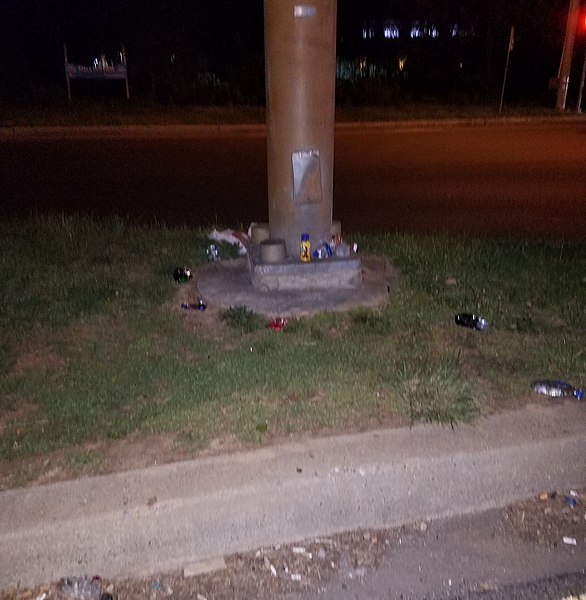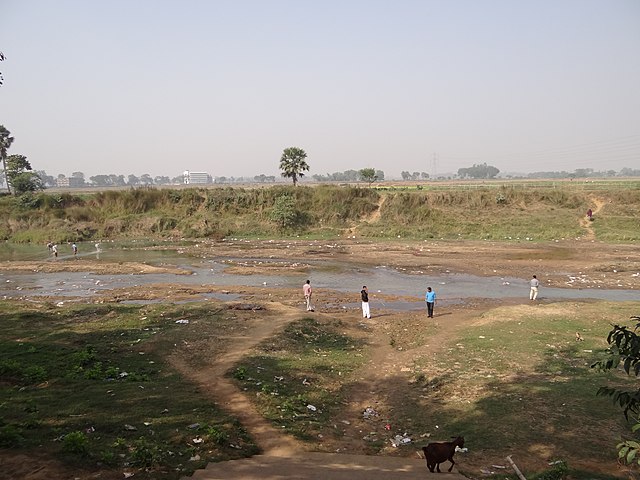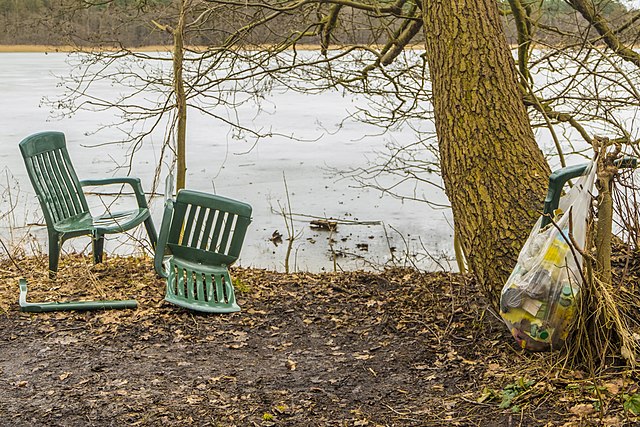Litter is a global issue and has a significant human impact on the environment. Litter is especially hazardous because it can enter ecosystems and harm a country's biodiversity. Litter is a prevalent environmental issue in New Zealand.
Litter in New Zealand
View of 'clean, green' countryside in Auckland
Litter in a stormwater drain in Wellington
A red billed gull with a cigarette butt in Wellington
Litter consists of waste products that have been discarded incorrectly, without consent, at an unsuitable location. The word litter can also be used as a verb: to litter means to drop and leave objects, often man-made, such as aluminum cans, paper cups, food wrappers, cardboard boxes or plastic bottles on the ground, and leave them there indefinitely or for other people to dispose of as opposed to disposing of them correctly.
Platform of Strathfield station in Sydney, Australia. Rubbish accumulated over months, perhaps years due to unsustained periods of frequent cleaning.
Rubbish on a street corner in Germantown, Maryland, left behind by panhandlers.
A small river's valley in India shows extensive littering of plastic and paper. Human waste, illustrated by the urinating man, increase fecal coliform and other bacteria levels in the water.
Littering in nature








